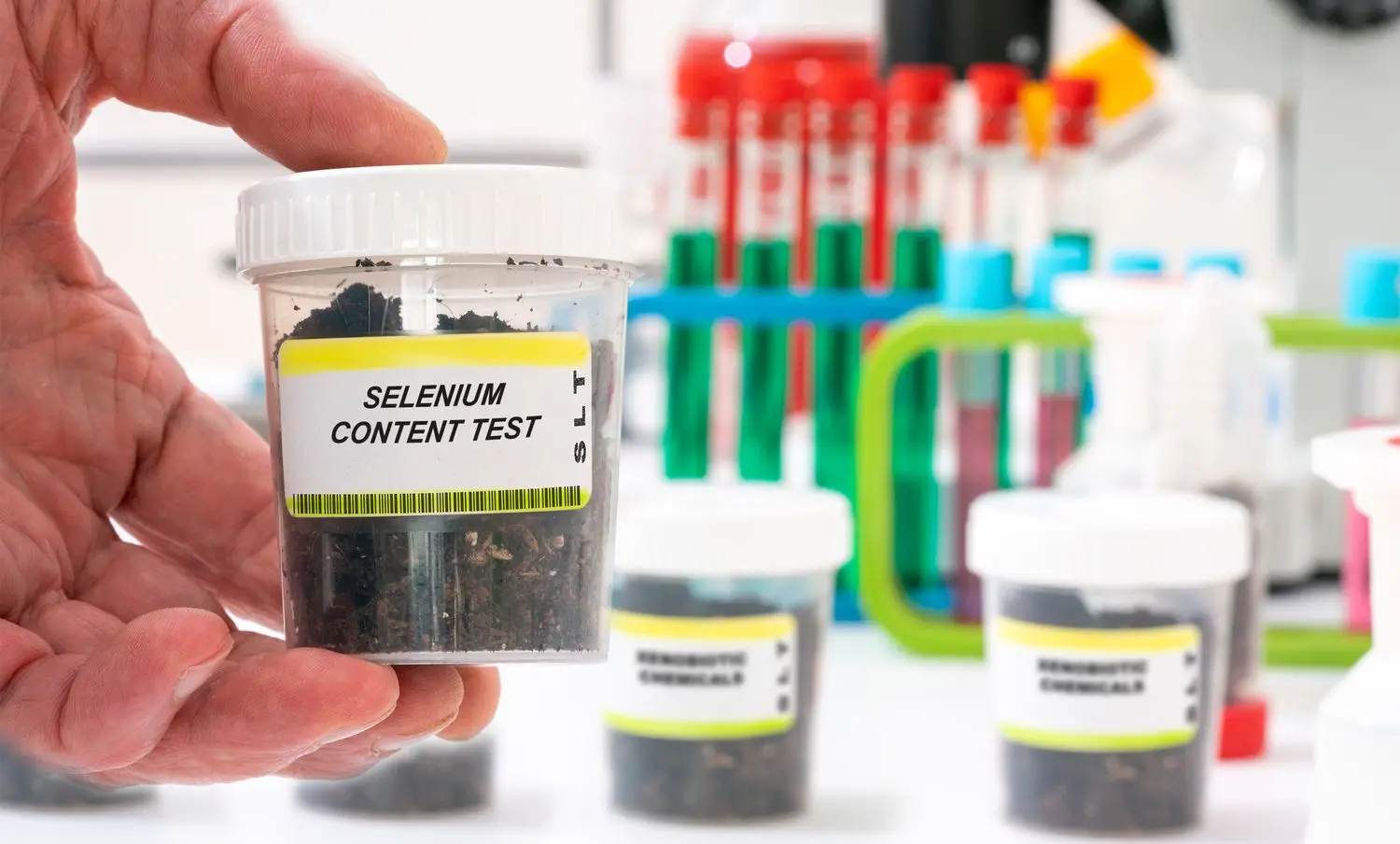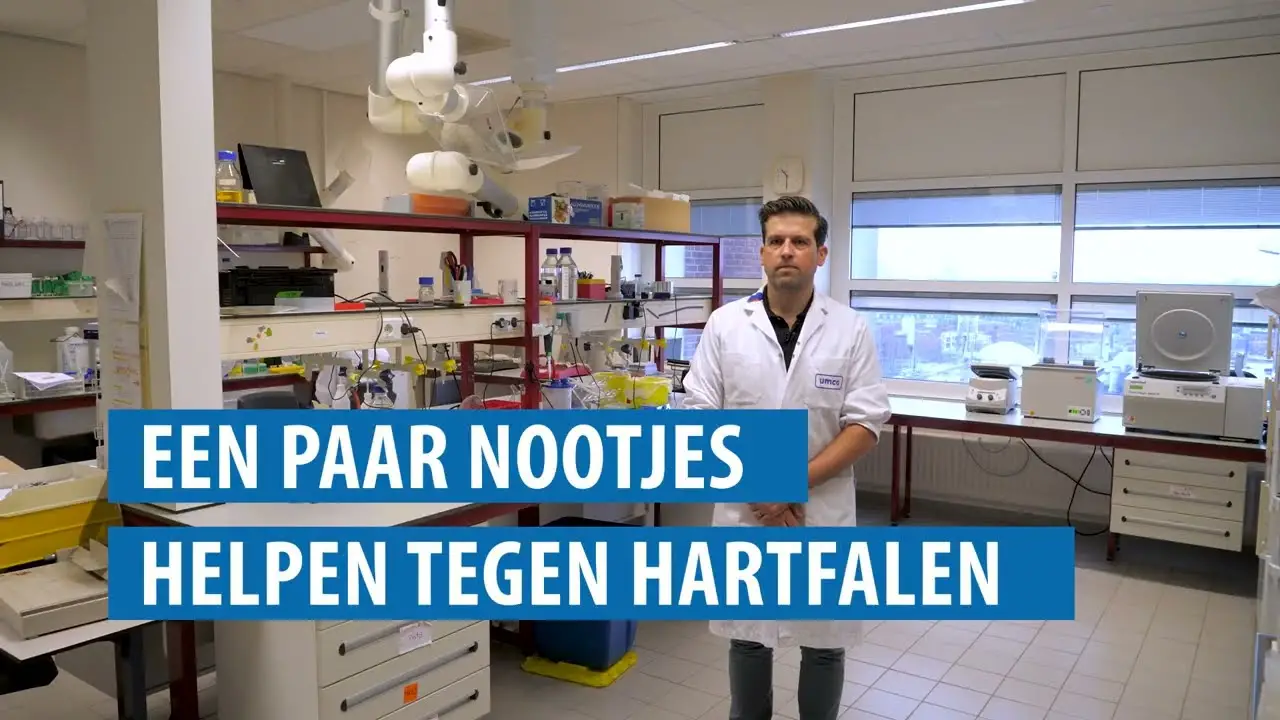Selenium is a vital trace mineral that plays a crucial role in various physiological functions in the human body. It is an essential nutrient that must be obtained through the diet, as the body cannot produce selenium on its own. In this blog post, we will explore the importance of selenium as a micronutrient, its health benefits, dietary sources, and potential risks associated with deficiency or toxicity.
Selenium: An Essential Trace Mineral

Selenium is a trace mineral that is essential for human health. It is a key component of several important enzymes, including glutathione peroxidase, which helps protect cells from damage caused by free radicals. Selenium also plays a critical role in thyroid function, immune response, and reproduction.
Health Benefits of Selenium
- Antioxidant Properties: Selenium acts as an antioxidant, helping to neutralize free radicals and reduce oxidative stress in the body. This can help prevent cellular damage and inflammation.
- Thyroid Support: Selenium is necessary for the production of thyroid hormones, which regulate metabolism, energy production, and overall growth and development.
- Immune Function: Selenium plays a key role in supporting the immune system, helping to defend against infections and diseases.
Sources of Selenium
Selenium is found in a variety of foods, with plant-based sources depending on the selenium content of the soil in which they are grown. Animal products such as meat, seafood, and dairy are typically good sources of selenium. Some common food sources of selenium include:
- Brazil nuts
- Fish (tuna, halibut, sardines)
- Poultry (chicken, turkey)
- Eggs
- Sunflower seeds
Selenium Vitamin: Health Benefits and Sources

Selenium is often referred to as a “selenium vitamin” due to its essential role in maintaining good health. In addition to its antioxidant properties and support for thyroid function, selenium has been linked to numerous other health benefits. Understanding the importance of selenium in the diet can help individuals make informed choices about their nutrition and overall well-being.
Cardiovascular Health
Research suggests that selenium may play a role in reducing the risk of cardiovascular disease. By protecting against oxidative stress and inflammation, selenium can help maintain heart health and reduce the likelihood of conditions such as atherosclerosis and hypertension.
Cancer Prevention
Some studies have indicated that selenium may have anti-cancer properties, particularly in reducing the risk of certain types of cancer such as prostate, lung, and colorectal cancer. Selenium‘s ability to inhibit tumor growth and promote DNA repair makes it a promising nutrient for cancer prevention.
Cognitive Function
Selenium has also been linked to cognitive function and brain health. Adequate selenium levels may help protect against neurodegenerative diseases such as Alzheimer’s and Parkinson’s, as well as support overall cognitive performance and mental acuity.
The Role of Selenium in Thyroid Health

The thyroid gland is responsible for producing hormones that regulate metabolism, growth, and energy levels in the body. Selenium plays a critical role in supporting thyroid function by aiding in the conversion of thyroid hormones and protecting the thyroid gland from oxidative damage. Understanding the relationship between selenium and thyroid health is essential for maintaining optimal thyroid function and overall well-being.
Thyroid Hormone Synthesis
Selenium is required for the synthesis of thyroid hormones, specifically the conversion of thyroxine (T4) to triiodothyronine (T3). T3 is the active form of thyroid hormone that regulates metabolism, energy production, and other vital functions in the body. Without adequate selenium, this conversion process may be impaired, leading to symptoms of hypothyroidism.
Antioxidant Protection
The thyroid gland is highly susceptible to oxidative damage due to its high metabolic activity and exposure to free radicals. Selenium helps protect the thyroid gland by acting as an antioxidant and reducing oxidative stress. This can help prevent thyroid disorders and maintain optimal thyroid function.
Autoimmune Thyroid Conditions
Selenium has also been studied for its potential role in autoimmune thyroid conditions such as Hashimoto’s thyroiditis and Graves’ disease. Research suggests that selenium supplementation may help reduce thyroid antibody levels, decrease inflammation, and improve thyroid function in individuals with these conditions.
Selenium Deficiency: Symptoms and Causes

Despite its importance for health, selenium deficiency is a common nutritional problem worldwide, particularly in regions where the soil is low in selenium. A lack of selenium in the diet can lead to various health issues and increase the risk of chronic diseases. Recognizing the symptoms and causes of selenium deficiency is essential for early detection and intervention.
Symptoms of Selenium Deficiency
- Weakness and Fatigue: Selenium deficiency can lead to decreased energy levels, weakness, and fatigue due to impaired thyroid function and reduced antioxidant protection.
- Cognitive Impairment: Inadequate selenium intake has been linked to cognitive decline, memory problems, and poor concentration.
- Hair and Nail Changes: Selenium deficiency may manifest as brittle hair, hair loss, and changes in nail texture and color.
Causes of Selenium Deficiency
- Poor Dietary Intake: Consuming a diet low in selenium-rich foods is the primary cause of selenium deficiency. This is more common in regions with selenium-deficient soil.
- Gastrointestinal Disorders: Conditions that affect nutrient absorption, such as Crohn’s disease or celiac disease, can impair selenium uptake and lead to deficiency.
- Increased Requirement: Certain factors, such as pregnancy, lactation, or intense physical activity, may increase the body’s need for selenium and raise the risk of deficiency.
Selenium Supplementation: When and How
In cases of confirmed selenium deficiency or increased selenium requirements, supplementation may be necessary to restore optimal selenium levels. Selenium supplements are available in various forms, including selenium methionine, selenium selenite, and selenium yeast. It is important to consult with a healthcare provider before starting selenium supplementation to determine the appropriate dosage and form based on individual needs.
Selenium Toxicity: Risks and Prevention

While selenium is essential for health, excessive intake of selenium can lead to toxicity and adverse effects on the body. Selenium toxicity is rare but can occur through high-dose supplementation or environmental exposure to selenium-rich soil or water. Understanding the risks and prevention strategies for selenium toxicity is crucial for maintaining safe selenium levels and preventing potential harm.
Symptoms of Selenium Toxicity
- Gastrointestinal Disturbances: Excessive selenium intake can cause nausea, vomiting, abdominal pain, and diarrhea.
- Hair and Nail Changes: Selenium toxicity may result in hair loss, brittle nails, and changes in nail texture.
- Neurological Effects: Severe selenium toxicity can lead to neurological symptoms such as numbness, tingling, and coordination problems.
Risk Factors for Selenium Toxicity
- High-Dose Supplements: Taking selenium supplements in doses exceeding the recommended daily allowance (RDA) significantly increases the risk of toxicity.
- Environmental Exposure: Living in areas with naturally high levels of selenium in the soil or water can lead to unintentional selenium toxicity through food and drinking water.
- Occupational Hazards: Certain occupations, such as mining or agriculture, may involve exposure to high levels of selenium in the environment, increasing the risk of toxicity.
Prevention of Selenium Toxicity
To prevent selenium toxicity, it is important to avoid excessive selenium intake from supplements and be mindful of environmental sources of selenium. Following the recommended dietary guidelines for selenium intake and consulting with a healthcare provider before starting selenium supplements can help minimize the risk of toxicity and ensure safe selenium levels in the body.
Selenium in Food: Common Sources and Dietary Recommendations

Dietary sources of selenium vary depending on the selenium content of the soil in which food is grown. Including selenium-rich foods in the diet is essential for meeting daily selenium requirements and maintaining optimal health. Understanding common food sources of selenium and following dietary recommendations can help individuals achieve adequate selenium intake and support overall well-being.
Common Food Sources of Selenium
- Brazil Nuts: Known for their exceptionally high selenium content, Brazil nuts are one of the richest food sources of selenium.
- Seafood: Fish and shellfish, such as tuna, halibut, shrimp, and oysters, are excellent sources of selenium.
- Meat and Poultry: Beef, chicken, turkey, and pork are good sources of selenium, especially when raised on selenium-rich soil.
| Food Source | Selenium Content (mcg per serving) |
|---|---|
| Brazil Nuts | 544 mcg |
| Yellowfin Tuna | 92 mcg |
| Chicken Breast | 27 mcg |
| Pork Chops | 23 mcg |
Dietary Recommendations for Selenium Intake
The Recommended Dietary Allowance (RDA) for selenium varies by age and gender, with adult men and women needing approximately 55 mcg of selenium per day. Pregnant and lactating women may require slightly higher selenium intake to support maternal and fetal health. Meeting selenium needs through a balanced diet that includes selenium-rich foods is the best way to ensure adequate intake and prevent deficiency.
Selenium in Medicine: Therapeutic Uses and Applications

In addition to its role as an essential nutrient, selenium has been studied for its therapeutic potential in various medical conditions. Selenium supplementation and selenium-based compounds have shown promise in managing certain health issues and supporting overall well-being. Understanding the therapeutic uses and applications of selenium in medicine can provide valuable insights into its clinical benefits.
Antioxidant Therapy
Selenium‘s antioxidant properties make it a valuable component of antioxidant therapy for conditions characterized by oxidative stress and inflammation. Selenium supplementation has been explored in the treatment of chronic diseases such as cardiovascular disease, diabetes, and neurodegenerative disorders to mitigate cellular damage and improve outcomes.
Immune Modulation
Selenium plays a crucial role in immune function, influencing the body’s defense mechanisms against infections and diseases. Selenium supplementation has been investigated for its potential to modulate immune responses, enhance immune cell activity, and reduce inflammation in conditions such as autoimmune disorders and viral infections.
Cancer Treatment
Research has suggested that selenium may have anti-cancer properties and could be used as an adjunct therapy in cancer treatment. Selenium compounds have demonstrated anti-tumor effects, apoptosis induction, and DNA repair enhancement in preclinical studies, highlighting their potential as complementary treatments for certain types of cancer.
Selenium in Agriculture: Importance and Concerns

Selenium is not only essential for human health but also plays a critical role in agriculture and livestock production. Selenium deficiency in soil can lead to selenium deficiency in crops and animals, impacting food quality and animal health. Understanding the importance of selenium in agriculture and addressing concerns related to selenium deficiency are essential for sustainable farming practices and food security.
Importance of Selenium in Agriculture
- Livestock Nutrition: Selenium is an essential nutrient for livestock health, contributing to growth, reproduction, and disease resistance in animals. Selenium supplementation in feed is commonly used to prevent selenium deficiency and improve animal productivity.
- Crop Quality: Selenium-enriched soil can enhance the selenium content of crops, providing a nutritious food source for humans and animals. Selenium-fortified crops offer a sustainable solution to combat selenium deficiency in regions with low soil selenium levels.
Concerns About Selenium Deficiency
- Animal Health: Selenium deficiency in livestock can lead to various health issues, including white muscle disease, reproductive disorders, and weakened immune function. Supplementing animals with selenium is necessary to prevent these conditions and ensure optimal health.
- Human Nutrition: Selenium deficiency in crops grown on selenium-deficient soil can contribute to inadequate selenium intake in humans. Consuming selenium-poor foods may increase the risk of selenium deficiency and associated health problems in populations relying on these crops for sustenance.
Selenium Biofortification
Selenium biofortification involves enhancing the selenium content of crops through agricultural practices such as soil supplementation or plant breeding. By increasing the selenium levels in staple foods, biofortification aims to address selenium deficiency and improve public health outcomes in selenium-deficient regions.
The Future of Selenium Research and Applications
As scientific knowledge advances, ongoing research continues to uncover new insights into the role of selenium in health and disease. Emerging technologies and innovative approaches are expanding the applications of selenium in various fields, from medicine to agriculture. The future of selenium research holds promise for developing novel therapies, improving nutritional strategies, and addressing global health challenges related to selenium deficiency.
Precision Nutrition
Advancements in precision nutrition and personalized medicine are paving the way for tailored selenium interventions based on individual genetic profiles, dietary habits, and health status. Precision approaches to selenium supplementation can optimize health outcomes and minimize the risk of deficiency or toxicity in diverse populations.
Nanotechnology
Nanotechnology offers exciting opportunities for enhancing the bioavailability and efficacy of selenium-based compounds in biomedical applications. Nanoformulations of selenium have shown improved stability, targeted delivery, and enhanced therapeutic effects, opening up new possibilities for selenium-based therapies in cancer treatment and other medical fields.
Sustainable Agriculture
In the realm of agriculture, sustainable practices such as selenium biofortification and soil management are being explored to address selenium deficiency in crops and livestock. Sustainable agricultural solutions aim to improve food security, enhance crop yields, and promote environmental sustainability while ensuring adequate selenium levels in the food chain.
Conclusion about Selenium
Selenium is a versatile micronutrient with far-reaching implications for human health, agriculture, and medicine. From its essential role in antioxidant defense and thyroid function to its therapeutic potential in disease management, selenium continues to captivate researchers and practitioners alike. By understanding the importance of selenium, recognizing the signs of deficiency or toxicity, and embracing innovative applications of selenium in various fields, we can harness the full potential of this remarkable trace mineral for the betterment of global health and well-being.

